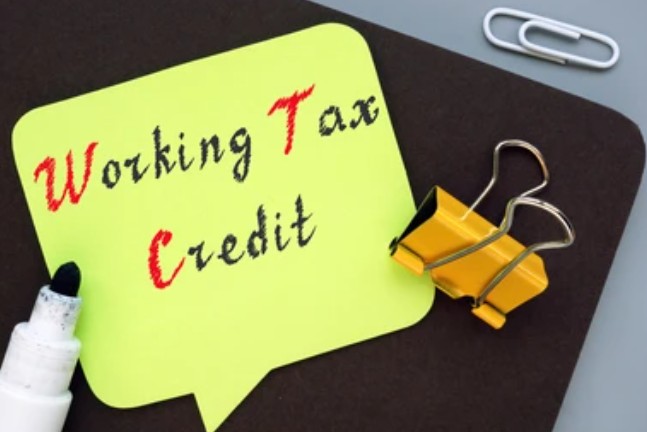When the Benefit Cap was introduced, it quickly became one of the most talked-about policies in the UK welfare system. Designed to limit the total amount of benefits most working-age people can receive, the cap has impacted many households across the country. However, what isn’t always made clear is this: many people are completely exempt from the Benefit Cap.
If you don’t know whether you’re affected, you could be missing out on vital support or wrongly assuming you’re stuck with lower benefit payments. In this blog, we will explore exactly who is exempt from the Benefit Cap, why these exemptions exist, and how real people across the UK have successfully navigated the system.
What is the Benefit Cap?
The Benefit Cap is a limit placed on the total amount of benefits a household can receive from the government. It was introduced to encourage people to move into work and to make sure that households on benefits do not receive more than the average working family earns.
As of April 2025, the benefit cap limits are:
- For families or single parents living in Greater London:
£25,323 per year (£2,110 per month) - For families or single parents living outside Greater London:
£22,020 per year (£1,835 per month) - For single adults with no children in Greater London:
£16,967 per year (£1,413 per month) - For single adults with no children outside Greater London:
£14,753 per year (£1,229 per month)
The cap applies to most people receiving benefits such as Universal Credit, Housing Benefit, Child Benefit, and Jobseeker’s Allowance. If your total benefits go over the limit, you will see your housing-related payments reduced.
While the Benefit Cap has affected many, there are specific exemptions that completely remove people from these limits.
Who is Exempt from the Benefit Cap?
The UK government recognises that some individuals and families face additional challenges, which is why there are clear exemptions from the Benefit Cap. Understanding these exemptions can help people access the full financial support they are entitled to.
People Working Enough Hours
One of the most common exemptions applies to those who are in work. If you or your partner are earning the equivalent of 16 hours per week at National Minimum Wage, your household will be exempt from the Benefit Cap. This is based on your earnings, not just the number of hours worked.
For example, if you earn at least £846 per month (after tax and National Insurance), you will not be subject to the cap while you remain in employment. This exemption is designed to encourage people to find work or increase their working hours to reduce reliance on benefits.
People Receiving Disability Benefits

If you, your partner, or a child you are responsible for receives certain disability-related benefits, you are automatically exempt from the Benefit Cap. These include:
- Disability Living Allowance (DLA)
- Personal Independence Payment (PIP)
- Attendance Allowance
- Armed Forces Independence Payment
- Employment and Support Allowance (ESA) with the Support Component
- Universal Credit with the Limited Capability for Work and Work-Related Activity (LCWRA) element
This exemption acknowledges that people with disabilities often face additional costs and challenges, making it unfair to apply the cap to their household.
People on Carer’s Allowance or the Carer Element of Universal Credit
Carers play an essential role in supporting family members with disabilities or long-term health conditions. If you receive Carer’s Allowance or the Carer element of Universal Credit, your household is exempt from the cap.
This exemption is particularly important because many carers are unable to work full-time due to their responsibilities. Recognising their contribution through exemption from the Benefit Cap helps ensure they are not penalised for putting their caring duties first.
People Receiving Working Tax Credit

If you or your partner receive Working Tax Credit, your household is automatically exempt. This means that even if your earnings are low, the fact that you are working and entitled to tax credits protects you from the cap.
This exemption is designed to support low-income workers and provides a significant incentive to move into employment.
People with Guardianship or Adoption Responsibilities
Some local allowances provided for guardians or adoptive parents can also lead to exemption from the Benefit Cap. These include special guardianship allowances or adoption support payments provided by local authorities.
This exemption recognises that people caring for children who are not their biological children may face additional financial pressures and should not be further restricted by the cap.
Real-Life Stories: How Exemptions Changed Lives?
Understanding exemptions is not just about numbers; it’s about real people, real families, and real struggles. Here are three genuine UK-based stories that show how knowing your rights can turn financial stress into stability.
Sarah’s Story – Discovering the Power of Disability Benefits
Sarah, a single mother from Birmingham, found herself overwhelmed when the Benefit Cap reduced her Housing Benefit by £85 per week. As she struggled to cover rent and daily expenses, she sought advice from a local support group. Sarah’s son was later diagnosed with autism, and she successfully applied for Personal Independence Payment (PIP) on his behalf.
This benefit not only provided extra financial support but also made her exempt from the Benefit Cap. Sarah describes the change as life-altering:
“I finally stopped worrying about losing our home. It allowed me to focus on getting the right care for my son instead of battling constant financial pressure.”
How to Check if You Are Exempt from the Benefit Cap?
If you’re unsure whether you qualify for an exemption, it’s essential to take action immediately. You can:
- Check your Universal Credit account to see if your benefits are capped.
- Speak to your local council about Housing Benefit reductions.
- Contact organisations like Citizens Advice, Shelter, or local welfare rights groups who can guide you through the process.
- Use the benefits calculators available on GOV.UK or through trusted charities to assess your current entitlement.
Many people discover they are already exempt but have not informed the Department for Work and Pensions (DWP), meaning they have been unnecessarily capped.
Why Knowing About Benefit Cap Exemptions is Crucial?

The cost-of-living crisis continues to place enormous strain on households across the UK. For families already struggling, understanding who is exempt from the Benefit Cap can mean the difference between keeping their home or losing it.
Too many people either accept the cap without question or don’t realise they qualify for additional support. Knowing your rights empowers you to protect your family’s income and security.
The system is complex, but the right information can help you navigate it effectively. Whether you are a parent, carer, disabled, or working part-time, you may not need to be living under the weight of the Benefit Cap.
Final Thoughts: Who is Exempt from the Benefit Cap?
If you’ve been wondering who is exempt from the Benefit Cap, the answer is clear: many people across the UK are. Whether you are working enough hours, receiving disability benefits, caring for a loved one, on Working Tax Credit, or providing guardianship, you may already qualify for an exemption.
Real-life stories show that exemptions can offer critical breathing space for families under pressure. But exemptions don’t apply automatically—you need to know about them, apply for the right benefits, and in some cases, challenge decisions to ensure you receive what you’re entitled to.
If you think you may be exempt, act now.
Speak to an adviser, check your benefits, and make sure your family gets the support it deserves.
Your financial future could depend on it.






